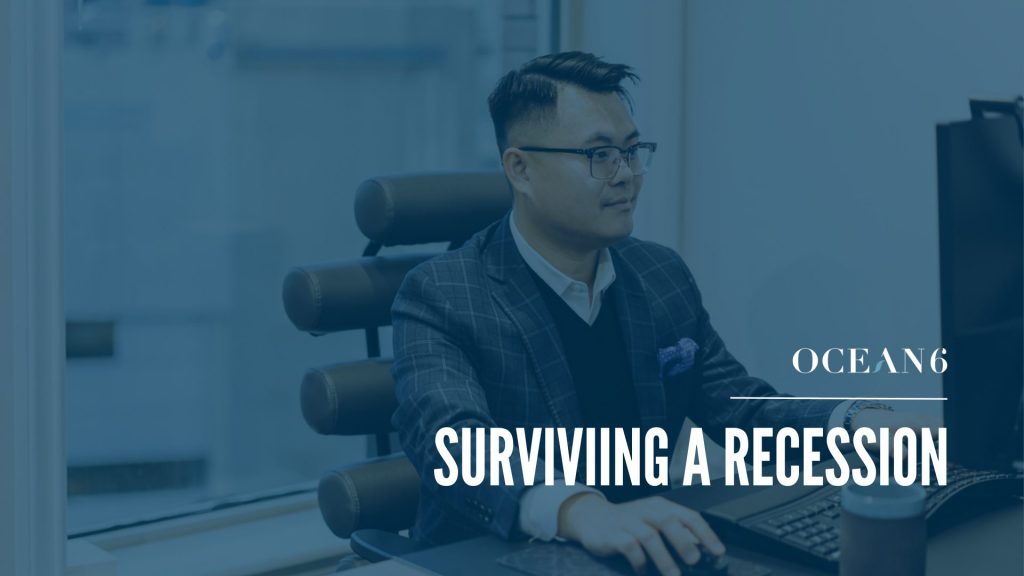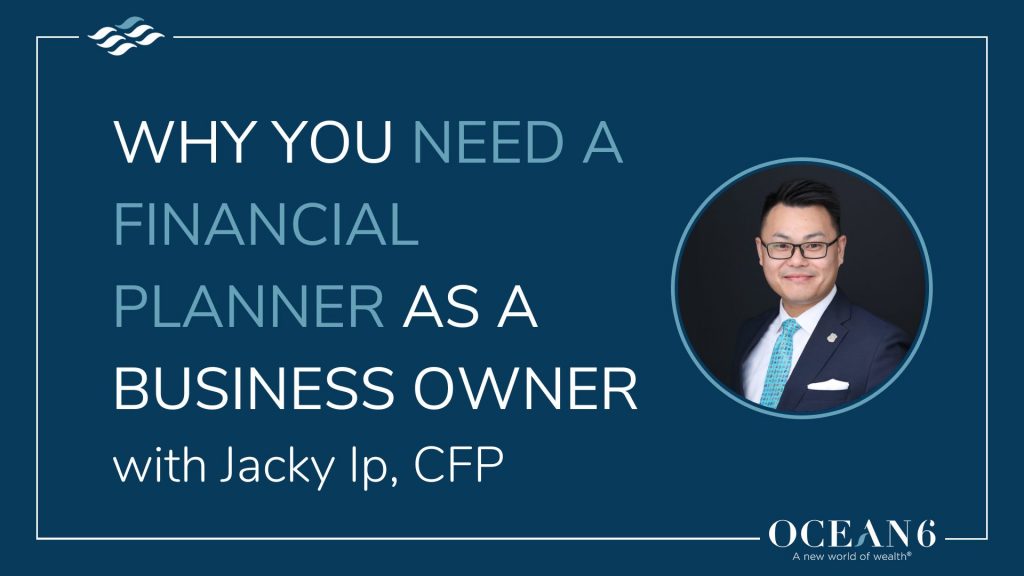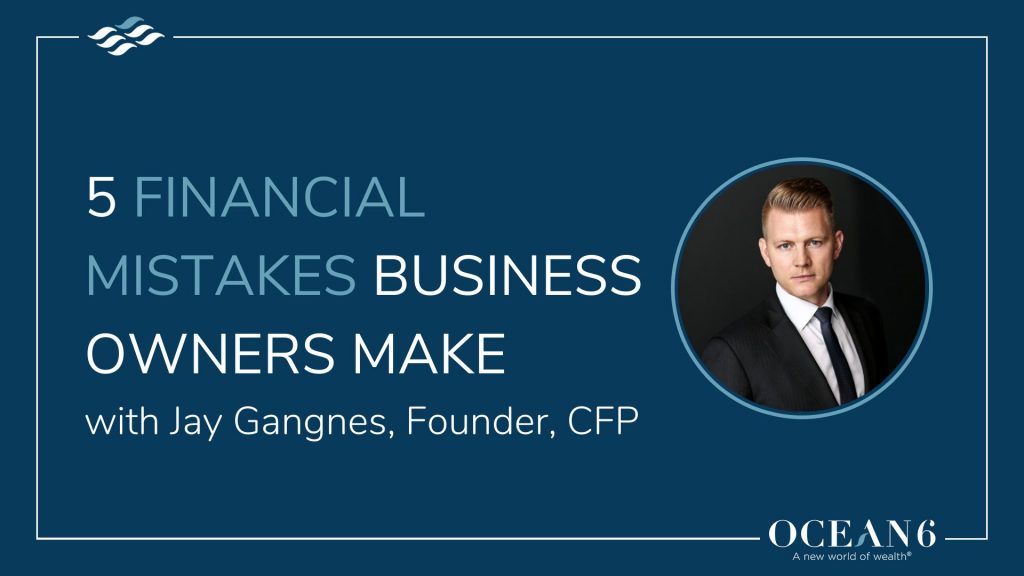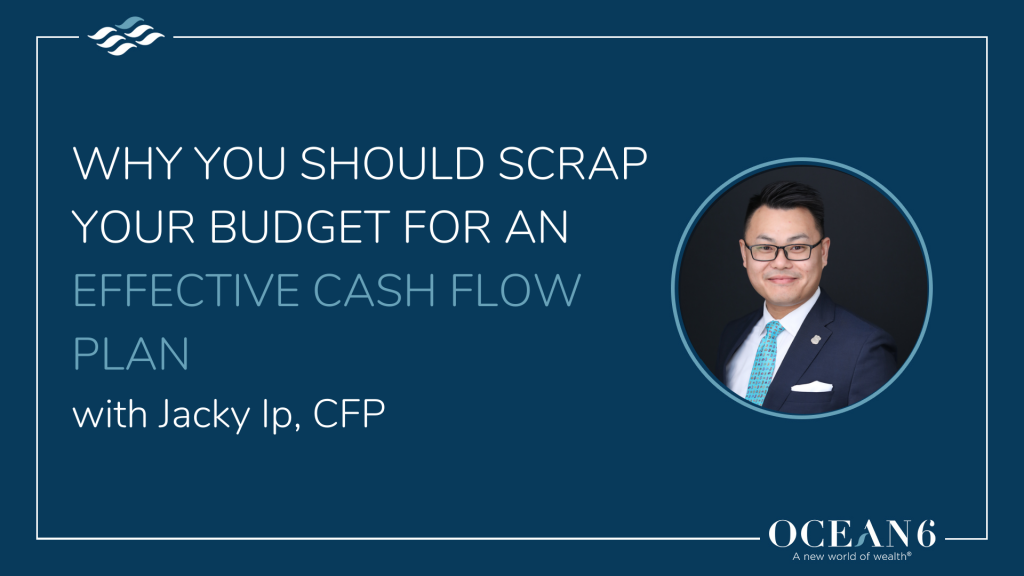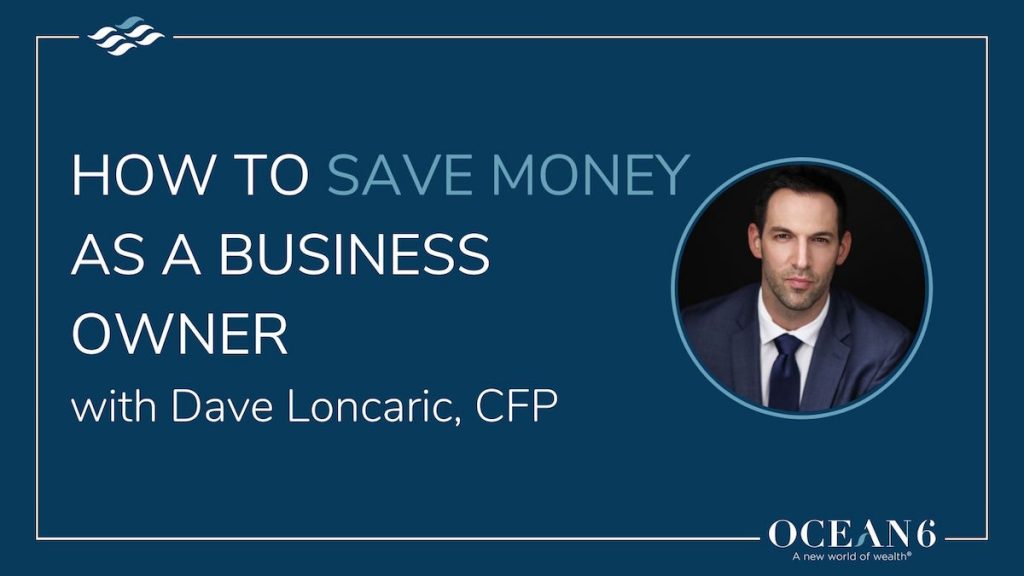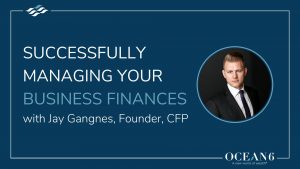With so many recent unknowns, it is understandable that cash flow has weighed heavily on people’s minds.
That is why we decided to make this the focus of Ocean 6’s first-ever podcast, to share our tips on managing your cash flow in an environment that is constantly changing.
Listen to the podcast and get the answers to some of our client’s most common questions.
How much cash should I have in my emergency fund?
The standard advice for an emergency fund is about 10% of your annual income, but to avoid financial stress, we always recommend having about three to six months in accessible cash. This does not have to be cash in the bank; it could be a Line of Credit or readily available investments.
Our recommendation is to have a Line of Credit. If the bank is holding your money in a savings account at a low rate of return and you also have a mortgage, you are borrowing back from them at a higher interest rate, and the bank wins every time.
If my corporate revenue has gone down, should I still be paying myself a dividend?
It depends on your circumstances; if you have personal savings or a Line of Credit to live off or you need to keep money in the company to survive, taking a reduced dividend is a good option. But if you have a large amount of cash sitting as retained earnings and it is not going to affect the cash flow of your business, take the same dividend. The great thing about paying yourself a dividend instead of a salary is that you have this flexibility.
When making this decision, consider your long-term plan; taking more money than usual out of the corporation is a band-aid solution and can result in a massive tax problem down the road. Be cautious with your cash flow plan and diligent about where your money is going.
How can I make sure I am spending money in the right places?
This period of downtime is an excellent opportunity to revisit your cash flow and make sure you allocate your dollars to the things in life that bring you joy. Take time out to review your expenses and decide what is crucial and what is unnecessary. Ask yourself, have I been spending money where I shouldn’t have? Are there savings I can make working from home? For example, pause monthly parking fees or adjust car insurance if you are not commuting.
If money is tight, you could consider payment deferral programs to cut back some of your short-term spendings. Just remember deferral programs are not forgiveness programs – at some point, you will need to pay back, so make sure you are not overspending.
Should I be deploying my capital for investing?
Knowing your goals will help you decide whether to keep cash in the bank or look at investment opportunities. Investing in the stock market should always be a long-term strategy. There could be another significant dip, and you don’t want to be relying on that money in the next three to five years.
How can I make sure I don’t overspend?
We always recommend using debit, cash, or e-Transfer instead of credit cards. Why? Because with a credit card, you don’t get the emotional impact of the money coming out of your bank account, and it is easy to lose track and overspend.
Cash can be hard to do right now, as a lot of stores are not accepting it. Instead, set yourself a weekly spend, and if you do have to use your credit card, immediately transfer the money over from your chequing account so you can account for the spend in your cash flow plan.
Start doing this now, and you are setting a good foundation. You might be able to handle overspending now, but ten, twenty years down the line, you are going to look back and wonder why you are not further ahead.
It comes down to three things: being responsible with your money, knowing where your money is going, and being clear on your goals.
This is the first episode of our new podcast, A New World of Wealth. We launched this podcast to share tips to set business owners in Canada up for success. You can subscribe on Spotify and soon on Apple and Google. If you’d like to talk through any of these strategies further, book a call, we’d be happy to discuss.

